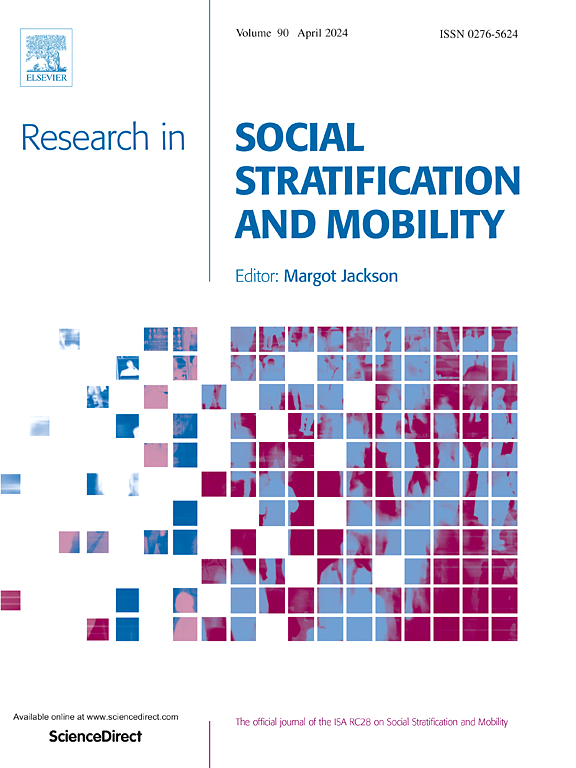Class, subjective status, and turnout in Europe
IF 2
1区 社会学
Q1 SOCIOLOGY
引用次数: 0
Abstract
Inspired by Weber’s distinction between class and status, the paper explores the independent and joint role of social class and subjective social status in shaping electoral participation in contemporary European democracies. While social class has long been established as a predictor of political behaviour, less attention has been paid to the influence of subjective status, an individual’s self-assessed position within the social hierarchy. Drawing on nineteen waves of data from the International Social Survey Program from 2002 to 2021 across twenty-five European countries, this paper examines how social class and subjective status independently and jointly influence electoral participation. The findings indicate that while social class remains a significant determinant of electoral participation, subjective status offers further insight. Individuals with higher subjective status are more likely to vote, regardless of their social class. Moreover, within social classes, particularly the working class, participation rates are stratified by subjective status, with a notable gap between individuals with high and low subjective status. By employing Linear Probability Models with Country-Year Fixed Effects, the study accounts for cross-national differences and provides a robust analysis of electoral participation in Europe. These results contribute to a deeper understanding of political inequality, suggesting that subjective aspects of social stratification should be considered alongside traditional class-based analyses to fully grasp the factors influencing political participation in European democracies.
阶级、主观地位和欧洲的投票率
受韦伯区分阶级和地位的启发,本文探讨了社会阶级和主观社会地位在塑造当代欧洲民主国家选举参与中的独立和共同作用。虽然社会阶层长期以来一直被认为是政治行为的预测因素,但人们很少关注主观地位的影响,即个人在社会等级中自我评估的地位。利用国际社会调查项目2002年至2021年在25个欧洲国家的19波数据,本文研究了社会阶级和主观地位如何独立和共同影响选举参与。研究结果表明,虽然社会阶层仍然是选举参与的重要决定因素,但主观地位提供了进一步的见解。无论社会阶层如何,主观地位较高的人更有可能投票。此外,在社会阶层,特别是工人阶级内部,参与率根据主观地位分层,主观地位高和低的个人之间存在显著差距。通过采用具有国家-年份固定效应的线性概率模型,该研究解释了跨国差异,并提供了对欧洲选举参与的有力分析。这些结果有助于加深对政治不平等的理解,表明除了传统的基于阶级的分析外,还应考虑社会分层的主观方面,以充分掌握影响欧洲民主国家政治参与的因素。
本文章由计算机程序翻译,如有差异,请以英文原文为准。
求助全文
约1分钟内获得全文
求助全文
来源期刊
CiteScore
7.80
自引率
6.00%
发文量
46
期刊介绍:
The study of social inequality is and has been one of the central preoccupations of social scientists. Research in Social Stratification and Mobility is dedicated to publishing the highest, most innovative research on issues of social inequality from a broad diversity of theoretical and methodological perspectives. The journal is also dedicated to cutting edge summaries of prior research and fruitful exchanges that will stimulate future research on issues of social inequality. The study of social inequality is and has been one of the central preoccupations of social scientists.

 求助内容:
求助内容: 应助结果提醒方式:
应助结果提醒方式:


